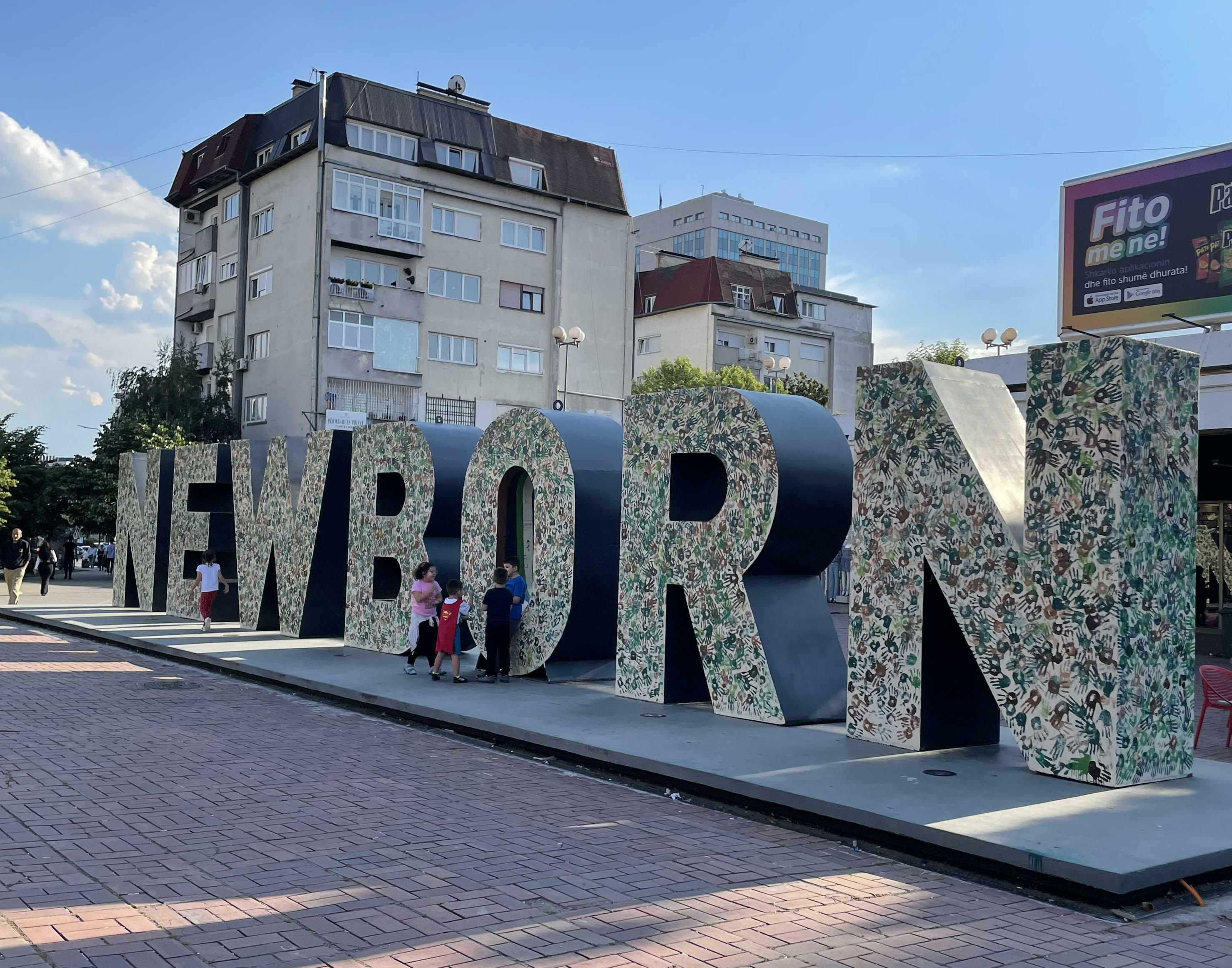Miresevini ne Prishtine!
That’s Albanian for “Welcome to Prishtine!”
Prishtine, as you may know, is the capital city of Kosovo. This summer, I’m interning with the Center for Legal Aid and Regional Development (CLARD) at their Prishtine headquarters. I’ll be blogging about the legal projects I’m working on, as well as my impressions of Kosovo and everyday life in Europe’s newest country. (For prospective students or other interested readers, I've posted additional information below about my decision to complete an internship in Kosovo!)
I arrived in Kosovo earlier this month, and officially began working at the CLARD office last Monday. Immediately, I felt welcomed by the small team at the office--we've bonded quickly over frequent coffees at the many cafes near the office. (My colleagues are very gracious and speak English with me, or often translate conversation topics from Albanian, but it's my goal this summer to master the basics!)

CLARD was established in 2007 and specializes in rule of law issues and the promotion of human rights in Kosovo. The center offers free legal aid to vulnerable citizens in the form of clinics, court representation, and strategic litigation, and also uses advocacy campaigns, training sessions, and special projects toward improving access to justice across Kosovo. So far with my internship, I've been developing a grant proposal for the Kosovar Civil Society Foundation, which would support delivery of legal aid services to ethnic minorities in Kosovo. Although this is a relatively straightforward project, I've had to do a fair amount of background research to learn about Kosovo's judicial system, as well as find successful examples of access to justice interventions in post-conflict regions. I'm wrapping up the proposal this week with my supervisor Anton, and will plan to share my findings in a later post!
For now, because this is the first of several blogs, I wanted to provide a brief overview of Kosovo's recent history and the country's declaration of independence from Serbia in 2008.
In the U.S., many people are familiar with Kosovo because of the violent conflict between ethnic Albanians and ethnic Serbs that took place in the late 1990s. To briefly touch on that conflict (with help from Encyclopedia Britannica), multiple different ethnic and religious groups lay claim to Kosovo as a site of cultural significance. Kosovo served as the center of a medieval Serbian empire, after which it was ruled by the Ottoman Empire for about 600 years. During this time, Islam’s influence increased among the growing population of ethnic Albanians in Kosovo. When Kosovo was incorporated into Serbia in the early 20th century, there were already established fault lines between the primarily Muslim Albanians and the predominantly Eastern Orthodox Serbs in Kosovo.
The conflict of the 1990s centered around these same interethnic, interreligious tensions, and stemmed from Kosovo's attempts to break away from Serbia after years of Serbian persecution against Albanian Kosovars. This included the Serbian Army's destruction of hundreds of Albanian villages, execution of an estimated 10,000 civilians, and forcible removal of Albanian Kosovars, resulting in a refugee crisis. The aggression only stopped in 1999 once NATO began military airstrikes against Serbian military forces and infrastructure.
Once peace was restored, the UN established an Interim Administrative Mission in Kosovo, which helped Kosovo develop the institutions of an independent country. In February 2008, Kosovo formally declared its independence from Serbia. Shortly after, the UN approved implementation of the EU Rule of Law Mission (EULEX), which continues to monitor Kosovo’s peacekeeping, judicial, and correctional functions. The mission aims to support Kosovo on its path toward EU integration.
Why intern abroad during law school, and why go to Kosovo?
When I told people of my plans to travel to Kosovo for my internship this summer, many were curious about this path--and with good reason! Taking an international internship (during a pandemic, during law school, etc.) is slightly unusual. But based on my experience conducting economic development research in China as a Fulbright grantee, CLARD's work stood out to me as a special chance to get involved with legal capacity-building on the ground. Even though I didn't work specifically in international relations or international development after I returned from China, I was struck by how the life lessons learned during that period continually informed other areas of my life (e.g., what it's like to be the only person of your race in a room, how to conduct research in a second language, etc.).
This summer, I was searching for a similarly enriching learning opportunity, and CLARD fit the bill. For law students interested in international law, post-conflict justice, or even just a new and challenging experience, the international route can offer a very unique experience that adds value in unexpected ways. Also, as you may be able to tell from my surname, my family is Eastern European in origin and comes from the former Yugoslavia. I’ve long been interested in learning more about the region through an academic lens, and the law school offered a great opportunity to do so, with the support of a professor and the structure of regular writing assignments. You can read more here about the International Internship Program.